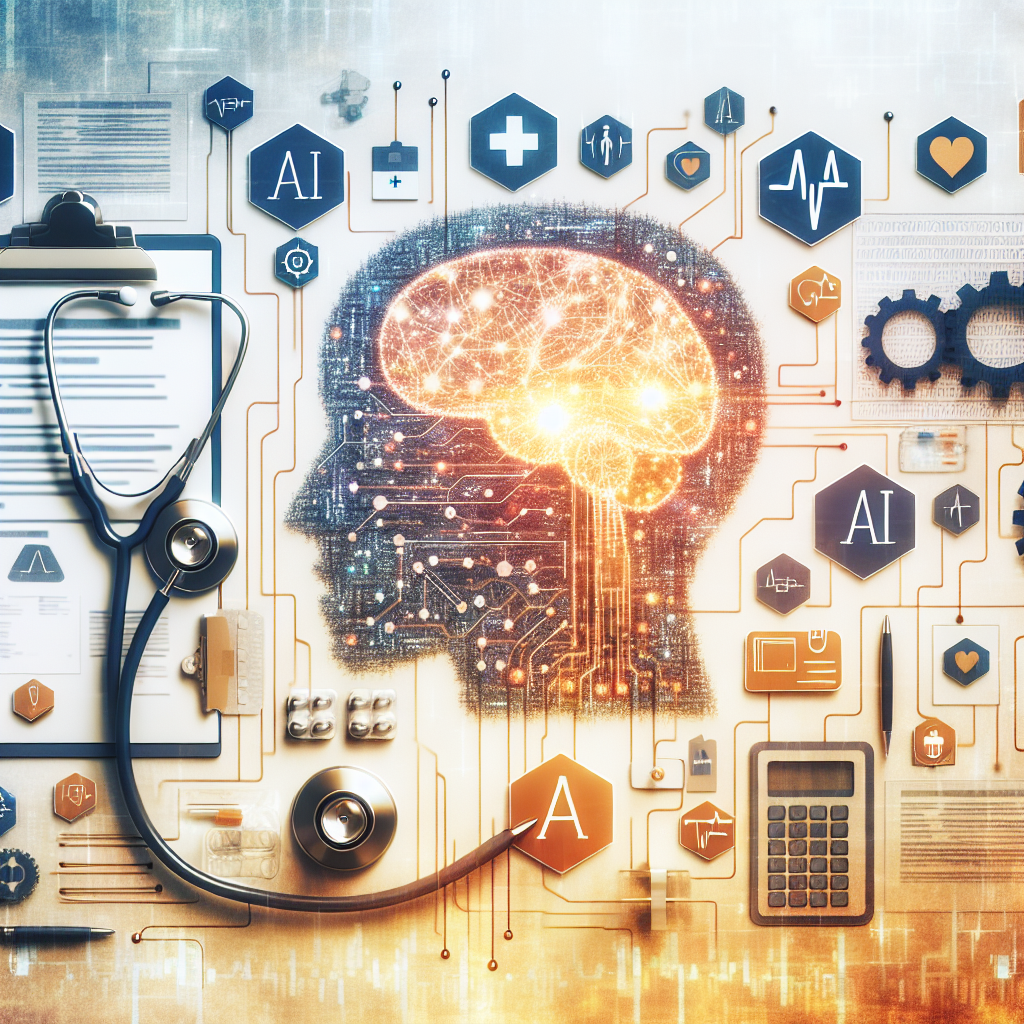AI Solutions for Personalized Medicine
Personalized medicine is an emerging field that aims to tailor medical treatment to the individual characteristics of each patient. This approach takes into account factors such as genetics, lifestyle, and environment to provide more precise and effective healthcare. Advances in artificial intelligence (AI) have played a crucial role in driving the development of personalized medicine, offering new opportunities for improved diagnosis, treatment, and prevention of diseases. In this article, we will explore how AI solutions are transforming personalized medicine and discuss some of the key challenges and opportunities in this rapidly evolving field.
The Role of AI in Personalized Medicine
AI technologies, such as machine learning and deep learning, have the potential to revolutionize personalized medicine by analyzing vast amounts of data to uncover patterns, trends, and insights that can inform personalized treatment plans. For example, AI algorithms can analyze genomic data to identify genetic mutations associated with specific diseases, predict patient outcomes, and recommend targeted therapies. AI can also analyze electronic health records, imaging data, and other sources of clinical information to help healthcare providers make more informed decisions about patient care.
One of the key advantages of AI in personalized medicine is its ability to process and analyze large and complex datasets quickly and accurately. This can help healthcare providers identify personalized treatment options for patients based on their unique characteristics, leading to more effective and efficient healthcare delivery. AI can also help healthcare providers monitor patient progress and adjust treatment plans in real-time, improving patient outcomes and reducing the risk of adverse events.
AI solutions can also help accelerate the development of new personalized therapies by identifying potential drug targets, predicting drug responses, and optimizing treatment regimens. By analyzing data from clinical trials, electronic health records, and other sources, AI can help researchers identify patients who are most likely to benefit from a specific therapy, enabling more targeted and effective treatment approaches. This can lead to faster drug development cycles, reduced costs, and improved patient outcomes.
Challenges and Opportunities in AI-Personalized Medicine
While AI has the potential to transform personalized medicine, there are several challenges that must be addressed to realize its full potential. One of the key challenges is the need for robust and diverse datasets to train AI algorithms effectively. To develop accurate and reliable AI models for personalized medicine, researchers need access to high-quality data from a wide range of sources, including genomic data, clinical data, imaging data, and patient outcomes. Ensuring the privacy and security of patient data is also a critical concern, as healthcare providers must comply with strict regulations to protect patient information.
Another challenge is the interpretability and transparency of AI algorithms in personalized medicine. Healthcare providers need to understand how AI models make predictions and recommendations to trust their accuracy and reliability. AI algorithms must be transparent, explainable, and accountable to ensure that healthcare providers can interpret and act on their recommendations effectively. This requires ongoing collaboration between data scientists, healthcare providers, and regulatory agencies to develop standards and guidelines for AI in personalized medicine.
Despite these challenges, there are significant opportunities for AI in personalized medicine to improve patient outcomes, reduce healthcare costs, and accelerate the development of new therapies. By leveraging AI technologies to analyze data, identify patterns, and predict outcomes, healthcare providers can deliver more personalized and precise care to patients, leading to better treatment outcomes and improved quality of life. AI can also help healthcare providers identify new biomarkers, drug targets, and treatment strategies that could revolutionize the way we diagnose and treat diseases.
FAQs
Q: What is personalized medicine?
A: Personalized medicine is an approach to healthcare that takes into account individual differences in genetics, environment, and lifestyle to provide more tailored and effective treatment for patients. By analyzing a patient’s unique characteristics, healthcare providers can develop personalized treatment plans that are more likely to be successful and minimize potential side effects.
Q: How does AI contribute to personalized medicine?
A: AI technologies, such as machine learning and deep learning, can analyze large and complex datasets to uncover patterns, trends, and insights that can inform personalized treatment plans. By processing genomic data, electronic health records, imaging data, and other sources of clinical information, AI can help healthcare providers identify personalized treatment options for patients based on their unique characteristics.
Q: What are some of the key challenges in AI-personalized medicine?
A: Some of the key challenges in AI-personalized medicine include the need for robust and diverse datasets, privacy and security concerns, and the interpretability and transparency of AI algorithms. Researchers must have access to high-quality data to train AI models effectively, comply with strict regulations to protect patient information, and develop transparent and explainable AI algorithms to ensure trust and accountability.
Q: What are the opportunities for AI in personalized medicine?
A: AI in personalized medicine offers significant opportunities to improve patient outcomes, reduce healthcare costs, and accelerate the development of new therapies. By leveraging AI technologies to analyze data, predict outcomes, and identify new treatment strategies, healthcare providers can deliver more precise and personalized care to patients, leading to better treatment outcomes and improved quality of life.

